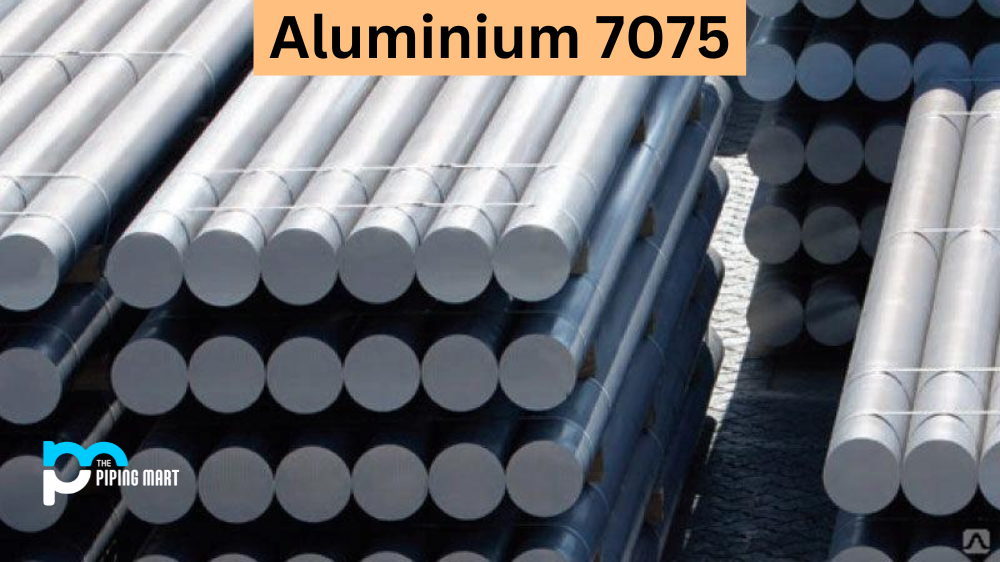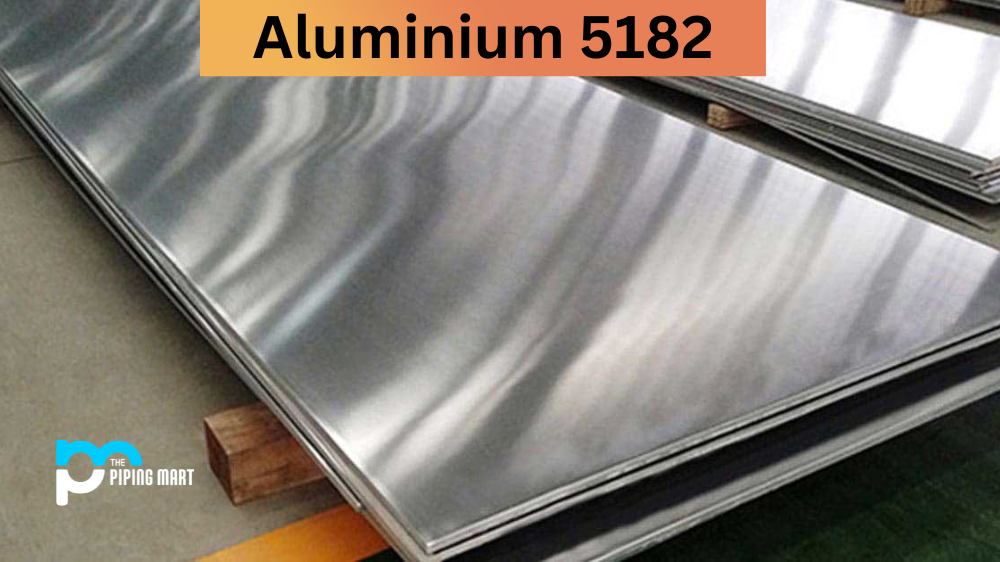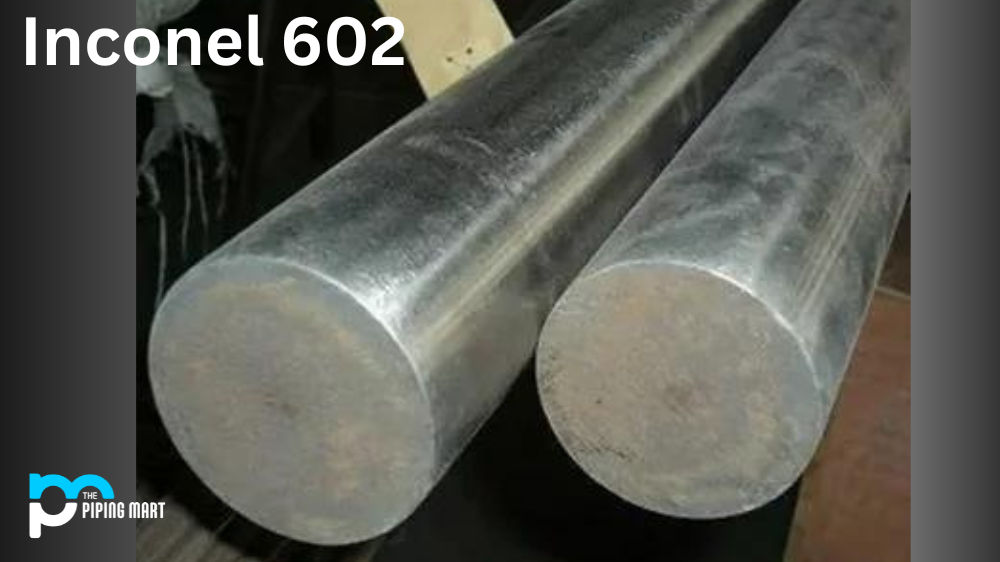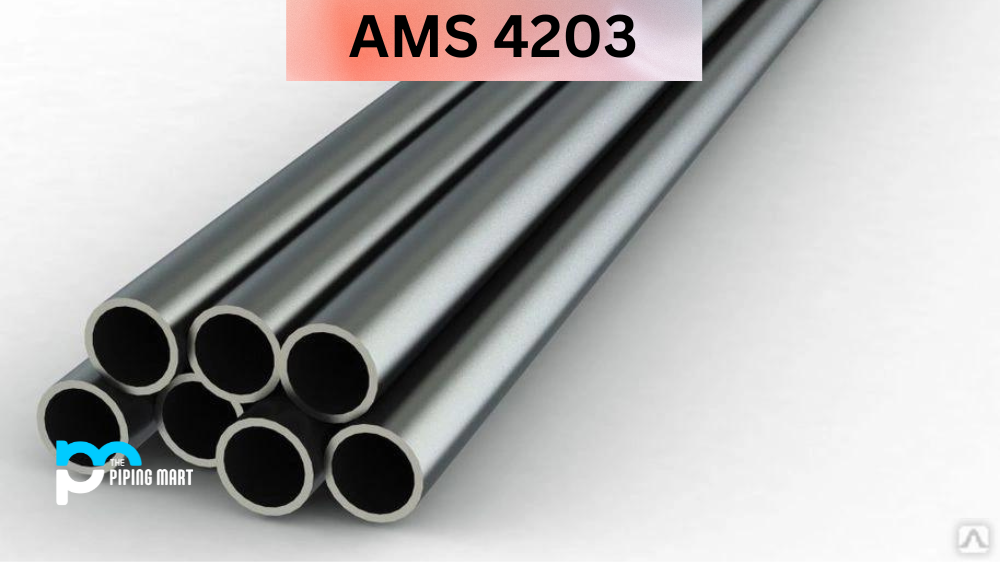Aluminium 7075 Alloy is a high-strength material that has entered many modern industries. This alloy comprises aluminium, zinc, copper, magnesium, and chromium, providing excellent mechanical properties that are highly desirable in aerospace and automotive applications. Aluminium 7075 is known for its outstanding strength-to-weight ratio, perfect for high-stress environments. In addition, its corrosion resistance capabilities are second to none, making it a popular choice for outdoor structures and marine applications. With its impressive strength, corrosion resistance, and lightweight properties, Aluminium 7075 Alloy will undoubtedly continue to be an essential material in various industries. Let’s take a closer look at some of the properties and uses of this versatile material.
What Forms of Aluminium 7075 is Available at Piping Mart?
- Aluminium 7075 Bar
- Aluminium 7075 Pipe
- Aluminium 7075 Tubes
- Aluminium 7075 Valves
- Aluminium 7075 Washers
- Aluminium 7075 Flanges
- Aluminium 7075 Fasteners
- Aluminium 7075 Sheet Plates
- Aluminium 7075 Pipe Fittings
- Aluminium 7075 Forged Fittings
7075 Alloy Composition
| Component Elements Properties | Metric | English | Comments |
|---|---|---|---|
| Aluminum, Al | 87.1 – 91.4 % | 87.1 – 91.4 % | As remainder |
| Chromium, Cr | 0.18 – 0.28 % | 0.18 – 0.28 % | |
| Copper, Cu | 1.2 – 2.0 % | 1.2 – 2.0 % | |
| Iron, Fe | <= 0.50 % | <= 0.50 % | |
| Magnesium, Mg | 2.1 – 2.9 % | 2.1 – 2.9 % | |
| Manganese, Mn | <= 0.30 % | <= 0.30 % | |
| Other, each | <= 0.05 % | <= 0.05 % | |
| Other, total | <= 0.15 % | <= 0.15 % | |
| Silicon, Si | <= 0.40 % | <= 0.40 % | |
| Titanium, Ti | <= 0.20 % | <= 0.20 % | |
| Zinc, Zn | 5.1 – 6.1 % | 5.1 – 6.1 % |
7075 Alloy Physical Properties
| Physical Properties | Metric | English | Comments |
|---|---|---|---|
| Density | 2.81 g/cc | 0.102 lb/in³ | AA; Typical |
7075 Alloy Mechanical Properties
Aluminum 7075 alloy is often used in the automotive, aircraft and aerospace industries due to its extremely high strength and excellent mechanical properties. This alloy features superior fatigue strength, stress corrosion cracking resistance and good machinability. It has a higher corrosion resistance than Aluminum 2024, making it an ideal choice for a wide variety of applications. With high strength-to-weight ratio, it provides a great solution for designing and manufacturing lightweight components with good mechanical properties. Along with excellent heat treatability, it is also recognized for its good weldability their low melting temperature at 427°C (800°F). Its significant benefits makes Aluminium 7075 alloy an attractive choice for engineers looking to create heavy-duty parts.
7075 Alloy Thermal Properties
| Thermal Properties | Metric | English | Comments |
|---|---|---|---|
| CTE, linear | 21.6 µm/m-°C @Temperature -50.0 – 20.0 °C |
12.0 µin/in-°F @Temperature -58.0 – 68.0 °F |
|
| 23.4 µm/m-°C @Temperature 20.0 – 100 °C |
13.0 µin/in-°F @Temperature 68.0 – 212 °F |
||
| 23.6 µm/m-°C @Temperature 20.0 – 100 °C |
13.1 µin/in-°F @Temperature 68.0 – 212 °F |
AA; Typical; average over range | |
| 24.3 µm/m-°C @Temperature 20.0 – 200 °C |
13.5 µin/in-°F @Temperature 68.0 – 392 °F |
||
| 25.2 µm/m-°C @Temperature 20.0 – 300 °C |
14.0 µin/in-°F @Temperature 68.0 – 572 °F |
||
| Specific Heat Capacity | 0.960 J/g-°C | 0.229 BTU/lb-°F | |
| Thermal Conductivity | 130 W/m-K | 900 BTU-in/hr-ft²-°F | AA; Typical at 77°F |
| Melting Point | 477 – 635.0 °C | 890 – 1175 °F | AA; Typical range based on typical composition for wrought products >= 1/4 in. thickness. Homogenization may raise eutectic melting temperature 20-40°F but usually does not eliminate it. |
| Solidus | 477 °C | 890 °F | AA; Typical |
| Liquidus | 635.0 °C | 1175 °F | AA; Typical |
7075 Alloy Uses
aluminum 7075 is a beneficial metal alloy and is widely used across the world. It has extremely high strength and hardness, making it ideal for use in military-grade equipment, tools, and armour; however, its uses don’t end there. In fact, aluminium 7075 is often seen in structural components like aircraft wings, crotchet frames as well as bicycle parts, to name a few. Its lightweight also makes it extremely useful for applications needing the transport of heavy materials over long distances. As such, aluminum 7075 can pave the way to endless possibilities and innovative solutions.
7075 Alloy Uses in Industries
- Aerospace Industry
- Automotive Industry
- Construction Industry
- Sports Equipment Industry
- Marine Industry
7075 Alloy Corrosion Resistance
Aluminium 7075 has excellent corrosion resistance due to its high levels of zinc and magnesium content. This makes it ideal for applications where parts will be exposed to harsh environments such as salt water or acidic conditions. It can also be anodized to further increase its corrosion protection capabilities.
7075 Alloy Heat Resistance
aluminum 7075 can withstand higher temperatures than other grades of aluminum without losing its strength or shape. This makes it perfect for use in applications where parts need to be exposed to extreme temperatures, such as jet engines and rocket thrusters. It also has excellent heat transfer capabilities, which make it ideal for use in heat exchangers or radiators.
7075 Alloy Heat Treatment
Aluminium 7075 can be heat treated in order to increase its strength, hardness, and wear resistance properties. Heat treating involves heating the material up to a certain temperature before quenching it in oil or water in order to achieve the desired results. Heat treatment should always be done by qualified professionals, as incorrect temperatures or quenching media could cause serious damage to the material.
7075 Alloy Machining
aluminum 7075 is relatively easy to machine compared with other metals but requires special cutting tools due to its high hardness and strength. This type of machining should always be done by experienced professionals who have knowledge of how best to cut this particular material without damaging it or causing any safety hazards during the process. It is also important that all machined pieces are thoroughly inspected after machining has been completed in order to ensure they meet the required specifications before being used in any application.
7075 Alloy Welding
Aluminium 7075 can be welded using either inert tungsten gas (TIG) welding or metal inert gas (MIG) welding techniques, depending on the application requirements and specifications needed for the part being welded together. Care must be taken when welding this material as incorrect parameters during welding could result in defects such as porosity, cracking, or weak welds that could potentially lead to failure of the part being welded together if not caught early enough during inspection after welding has been completed successfully.
Conclusion:
Aluminium 7075 is an extremely versatile alloy that can be used in many different industries due to its unique combination of strength, hardness, corrosion resistance, heat resistance, and machinability properties combined with its lightweight structure, making it suitable for numerous applications from aerospace components, all the way down through industrial components where weight savings are important factors for consideration when selecting materials for use in manufacturing processes. By understanding these factors, you’ll have a better idea of whether aluminium 7075 is right for your project’s needs!

A passionate metal industry expert and blogger. With over 5 years of experience in the field, Palak brings a wealth of knowledge and insight to her writing. Whether discussing the latest trends in the metal industry or sharing tips, she is dedicated to helping others succeed in the metal industry.




